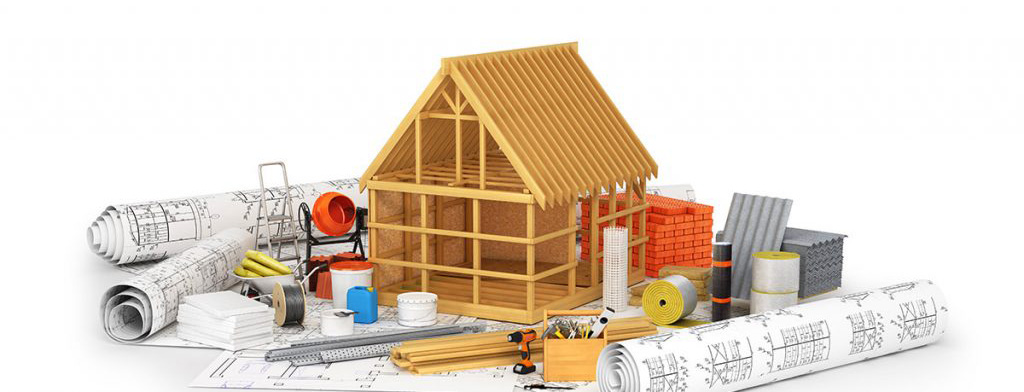Construction Loan Requirements
Up to 100% Financing
For residential builders
Interest Rate
10 - 13.25%
Origination fee
from 1.375%
Loan To Cost (LTC)
up to 90%
Construction Financing
up to 100%
Loan To ARV
up to 75%
Term
up to 24 months
Minimum Loan Amount
$100,000
Maximum Loan Amount
$5,000,000
Minimum FICO
650
Type of Property
Residential 1-4 units, condos, townhomes
What Are The Requirements For A Construction Loan?

Interest Rates
Short term construction loans often have higher interest rates and fees than a traditional mortgage would. This is due to the fact that construction loans pose a higher risk than traditional mortgage loans. Which means that when it comes to construction loan requirements for New Silver, investors can expect rates between 10 and 13.25%.
Origination Fee
The origination fee is a one-time upfront fee charged by the lender to cover the administrative costs of processing and underwriting the loan. It’s typically calculated as a percentage of the loan amount, and in the case of New Silver’s construction loans, the origination fee starts at 1.375%. The origination fee is typically paid at the closing of the loan.
Minimum Down Payment
A substantial down payment demonstrates a higher commitment to the project, in other words the more borrowers can contribute towards a down payment the better. Lenders typically require a down payment ranging from 20% to 40% of the total project cost, and in the case of New Silver a 10-20% down payment is most common. While this is higher than a permanent mortgage or traditional mortgage, it’s a way for lenders to mitigate the risks that come with these loans.
Minimum FICO Score
Unlike a traditional mortgage, New Silver’s construction loans work differently by prioritizing the quality of the real estate deal over personal financial history. However, there is still a minimum FICO score requirement for a construction loan. The minimum FICO score on New Silver’s construction loan requirements is 650.
Loan To Cost (LTC):
The Loan To Cost (LTC) represents the ratio of the loan amount to the total cost of the construction project. The cost of the construction project includes the property’s purchase price and the construction expenses. New Silver offers an LTC of up to 90%, which means that New Silver’s construction loans cover up to 90% of the total cost of the construction project.
Loan To ARV
The Loan To ARV (After-Repair Value) requirement on construction loans is a ratio that indicates the loan amount as a percentage of the property’s after-repair value. The ARV is the expected market value of the property, once the construction project has been completed. New Silver provides a Loan To ARV ratio of up to 75%, which means that up to 75% of the property’s after-repair value will be covered by the loan.
Construction Financing
New Silver’s construction loans cover up to 100% of construction financing. Borrowers should be prepared to show a comprehensive and detailed construction plan, to illustrate how the funds will be used. Contractor information may also be required, with a breakdown of the budget. This will vary according to each lender and the construction financing requirement.
Loan Term
The loan terms are another requirement for a construction loan, and they encompass various critical aspects of the loan agreement. Construction loans work like most other loan types, where the loan terms outline the interest rate, loan duration, loan fees, prepayment penalties, and more. New Silver provides instant loan terms once a loan has been approved, which is a significant advantage for borrowers. New Silver also offers loan terms of up to 24 on construction loans.
Minimum Loan Amount
The minimum loan amount is the lowest amount that can be borrowed in a construction loan. New Silver’s minimum loan amount is $100,000 on construction loans.
Maximum Loan Amount
The maximum loan amount is the highest amount that can be borrowed in a construction loan. New Silver’s maximum loan amount is $5,000,000 on construction loans.
Property Type
The type of property that is going to be constructed or renovated is a vital requirement for a construction loan. Lenders will typically have different criteria for each property type. New Silver’s construction loans cover the following property types, Residential 1-4 units, condos, townhomes.
Property Appraisal
A professional property appraisal is a requirement on a construction loan, to determine the property’s current value and expected value after renovations. Lenders use this information to assess the property’s potential and to set the loan amount. Borrowers will need to get a property appraisal done so that New Silver can determine the amount that they will lend.
Additional Requirements That Can
Ensure Your Loan Is Approved
Land/Property Address
Providing the exact address of the land or property is an important part of a construction loan application. This will allow construction loan lenders to assess the viability of the project and determine the value of property. The property address allows a lender to do a thorough evaluation by analyzing the local real estate market, assessing the property’s condition and conducting a title search.
Clear Exit Strategy
An exit strategy is an outline of how borrowers plan on repaying construction only loans, if they need to exit the deal. Common strategies include selling the property for a profit or refinancing with a permanent mortgage once construction is complete. This is a vital part of a loan application as it shows the construction loan lender that they will be repaid.
Construction Experience
Previous experience in construction projects may be required to qualify for a construction loan. As such, it’s a good idea to outline any experience with successful construction projects as this can be a significant asset in a construction loan application. A successful track record indicates to a construction loan lender that the risk of the borrower defaulting is very low, particularly for construction only loans.
Building Plans And Permits
Submitting detailed building plans that include the necessary permits, is a sure-fire way to add substance and credibility to a construction only loan application. Construction loans work on the project itself, so building plans should also include a timeline for the project, and milestones that need to be achieved along the way. This plan assures the lender that a project is well-structured and feasible.
Completed Construction Budget
A comprehensive construction budget is a useful tool that can vastly improve a borrower’s chances of qualifying for a construction only loan. It demonstrates the borrower’s commitment to the project’s success, thorough planning and ability to effectively manage the loan repayment.
Budget Feasibility Review
A budget feasibility review is an assessment of the construction budget to determine the project’s feasibility. This ensures that the budget is realistic, and the construction project is financially viable. Construction loan lenders will have more confidence in the success of a project where the budget clearly demonstrates feasibility.
More Construction Loan Resources

This Construction Loan Calculator quickly works out the maximum loan amount that you can qualify for when applying for a Construction Loan.
Find out the latest Construction Loan Rates here. This guide explores what rate you are likely to qualify for.
The typical down payment on a construction loan is between 10% and 20% of the total project cost.
Some lenders are better than others. This guide reveals the Best Construction Lenders at this moment in time.
This guide explains out how you can get started in the Construction Industry.
On average construction workers make over $50,000 annualy.This resource explores how much construction pays, on average.
This is a step-by-step guide which explains how to start a Construction Business.
There are 3 main types of Construction Loan. This guide highlights the differences between them.
There are various US banks providing different Construction Loan options for real estate investors
There are a number of differences between a Construction Loan and Mortgage. Each difference is fully explored in this guide.